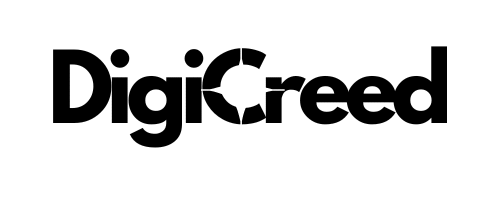How to Drive Traffic with Hashtags: A Step-by-Step Guide for Small Business Owners
Introduction to Hashtags and Their Importance in Social Media Marketing
Hashtags are words or phrases preceded by the pound sign (#) that serve as a critical tool for categorizing content on social media platforms. They help users discover relevant content and connect with others who share similar interests. By attaching a hashtag to a post, small businesses can extend their reach and enhance their visibility, making it easier for potential customers to find their offerings. Each social media platform has its own unique approach to hashtags, but their fundamental purpose remains consistent across these networks.
The significance of hashtags in social media marketing cannot be overstated. For small business owners, hashtags function as a bridge to broader audiences. When used strategically, hashtags can transform a standard post into a part of a larger conversation. This engagement substantially increases the chances of a post being seen, liked, shared, and commented on, ultimately driving traffic to a business’s social media profile or website.
Utilizing hashtags effectively can yield numerous benefits for small businesses. Firstly, they can improve brand visibility by placing the content in front of users who are actively searching for related topics. Secondly, they can enhance user engagement, as posts with relevant hashtags tend to receive higher interaction rates than those without. Moreover, hashtags can help small businesses monitor trends and adjust their marketing strategies accordingly. The right combination of trending and niche-specific hashtags facilitates a better understanding of what resonates with the target audience, allowing for refined and targeted marketing approaches.
In conclusion, understanding the role of hashtags and leveraging them effectively is essential for small businesses looking to optimize their social media marketing efforts. As a powerful tool, hashtags can drive traffic, increase brand awareness, and create a more engaged customer base.
Choosing the Right Hashtags for Your Business
Hashtags play a pivotal role in increasing the visibility of social media posts, but understanding how to select the right ones for your business is crucial to effective engagement. To begin, small business owners should conduct thorough research into trending hashtags that align with their brand identity and target audience. Keeping an eye on competitors and industry leaders can provide valuable insights into successful hashtags that they frequently use.
Utilizing hashtag analysis tools is an invaluable strategy. Platforms such as Hashtagify, RiteTag, and Keyhole offer analytics on hashtag popularity, relevance, and trends over time. These resources will allow business owners to identify not only which hashtags are currently popular but also those that have the potential to resonate with their target demographic. By analyzing various metrics such as usage frequency and engagement rates, small business owners can make informed decisions about what hashtags to incorporate into their social media strategy.
In crafting a hashtag strategy, it is beneficial to mix both broad and niche hashtags. Broad hashtags, while more competitive, can increase visibility to a larger audience. In contrast, niche hashtags target specific segments of the audience, thereby enhancing the likelihood of meaningful engagement. For instance, if you own a local bakery, using a broad hashtag like #bakery may attract many users, but adding more specific tags like #glutenfreedesserts or #localbakery will help reach those who are more likely to convert into customers. Furthermore, incorporating location-based hashtags can connect your posts to community members who are searching for local products and services.
Ultimately, developing a customized hashtag strategy requires a blend of research, tools, and an understanding of both broad and niche audiences. By implementing these strategies, small business owners can effectively enhance their social media presence and engage with customers who resonate with their brand values and offerings.
Best Practices for Using Hashtags in Your Posts
In the realm of social media marketing, effective use of hashtags can significantly enhance the visibility of your posts. However, to maximize the benefits, it is essential to follow best practices. First and foremost, the placement of hashtags plays a critical role. Ideally, hashtags should be positioned at the end of the post, ensuring that the main content remains clear and digestible for your audience. This approach allows your followers to focus on the message while the hashtags serve as supplementary tools for discoverability.
When considering the appropriate number of hashtags, various platforms have different optimization strategies. For platforms like Instagram, utilizing around 9 to 11 hashtags per post is generally found to increase engagement. Conversely, Twitter favors fewer, typically 1 to 3 hashtags, to maintain concise communication in a platform defined by character limits. Meanwhile, Facebook and LinkedIn users often achieve better engagement with minimal hashtag use, as excessive tags can detract from professionalism and clarity.
Another critical aspect is the organization of hashtags. Businesses should strive to create clusters of relevant hashtags that align with their content. Grouping related tags allows for better readability and makes the post more appealing to users scanning through content. Additionally, businesses should be cautious not to overuse hashtags, as this can lead to a cluttered appearance and may even come across as spammy. An excessive number of hashtags can diminish credibility, potentially alienating your target audience.
As a general guideline, aim to use hashtags purposefully, focusing on quality over quantity. Engaging with trending or niche hashtags can tap into wider discussions or specific communities, thereby driving targeted traffic to your posts. Adhering to these best practices will help maintain a professional image while effectively utilizing hashtags to boost visibility and engagement.
Measuring and Analyzing Hashtag Performance
For small business owners aiming to enhance their social media strategies, measuring and analyzing the performance of hashtags is pivotal. Effective hashtag usage can significantly impact engagement, reach, and the overall traffic generated to a business’s social media accounts or website. To track the effectiveness of hashtags, various tools and metrics can help assess their performance.
One popular tool is Google Analytics, which enables businesses to monitor traffic sourced from social media platforms where hashtags were used. By examining referral traffic, owners can identify which hashtags contribute to visitor numbers on their websites. Additionally, social media platforms like Instagram, Twitter, and Facebook provide in-depth analytics features that detail post engagement rates and impressions linked to specific hashtags. Utilizing these insights empowers business owners to understand which hashtags resonate with their target audience.
Key metrics to monitor include engagement rates, which reflect user interactions such as likes, shares, comments, and saves. Another important metric is the reach, which indicates how many unique users viewed the posts associated with specific hashtags. Tracking these metrics over time enables small business owners to evaluate which hashtags drive meaningful engagement and to identify trends in audience interaction with their content.
Adjusting hashtag strategies based on performance data is essential for ongoing improvement. By regularly assessing which hashtags yield the best results, business owners can refine their approach, experiment with new hashtags, and phase out those that underperform. This iterative process helps ensure that their hashtag usage evolves in tandem with changing audience behaviors and preferences.
Through diligent measurement and analysis of hashtag performance, small business owners can confidently optimize their social media strategies, ultimately driving increased traffic and engagement with their target audience.

